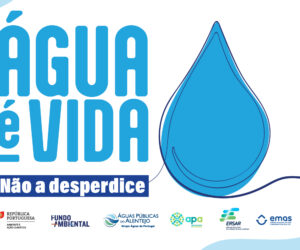 The Alentejo CCDR will have two more vice-presidents. Statutes published today create organic units for agriculture and fisheries and culture.
The Alentejo CCDR will have two more vice-presidents. Statutes published today create organic units for agriculture and fisheries and culture.
The Regional Coordination and Development Commission (CCDR) of Alentejo will have two more vice-presidents, in accordance with the statutes approved by the Government and published today in “Diário da República”.
The governing structure of this body will thus be formed by the president (elected by the region's mayors), by a vice president (elected by the presidents of the Chamber) and by three vice-presidents appointed by the Government.
In other words, to AntĂłnio Ceia da Silva (President), AnĂbal Reis Costa and Carmen Carvalheira (vice-presidents), two other directors will join, not yet named.
The publication of the statutes also formalizes the concentration in the CCDR of Alentejo of competencies in the areas of Agriculture and Fisheries and Culture, due to the extinction of the Regional Directorates of Agriculture and Fisheries and Culture, which now become “organic operational units” of the Coordination Committee.
In total, six of these units appear: Regional Planning and Development; Environment, Nature Conservation and Biodiversity; Spatial planning; Culture; Agriculture and Fisheries and Rural Development and Licensing.
In the case of Culture, according to the statutes, the CCDR of Alentejo will have competences in the area of ​​safeguarding cultural heritage, including issuing opinions and monitoring “interventions in the protection zones of properties classified or in the process of being classified”.
In the area of ​​cultural studies and projects, this body will now have powers to “grant financial support or other incentives to public or private entities, singular or collective, national or foreign, whose aim is to conserve, safeguarding and enhancing cultural heritage and cultural activity in the respective area of ​​intervention”.
In the area of ​​cultural programming, it is planned, among other skills, support for associations and cultural initiatives of a non-professional nature, in addition to participation in cultural initiatives, starting with the European Capital of Culture.
Regarding the Agriculture and Fisheries Unit, will have competences in terms of supporting production and encouraging agriculture and fisheries, must “ensure the necessary actions for the analysis, approval, monitoring and validation of investment projects supported by public funds in accordance with functional standards, namely support from the Common Agricultural Policy or national support, as well as the analysis of payment requests”.
News: Lidador News/ Southwest Portugal

























